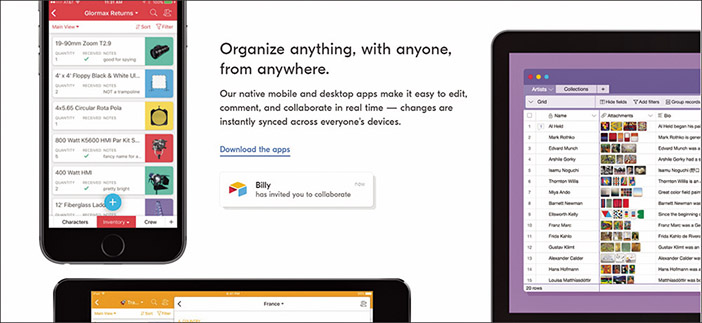

Was it only a decade ago that “high tech wedding” referred to scanning items to add to a registry? Over the past few years, there has been a proliferation of programs and apps, both free and fee-based, to help couples plan their big day.
Do these services really help? Or do they just add another level of confusion to an already busy and overwhelming time?
Wedding website www.TheKnot.com aims to provide a one-stop shop for the upcoming bride and groom. One of their well-known services is their aggregated online registry. Couples can register at all their favorite locations from the one website, while friends and guests can search The Knot by name and find a list of places where the couple has registered.
What people may not realize is that The Knot also offers templates for building a website, registry help, informational articles, budgeting checklists and guest-list database pages. If anyone needs a quick tutorial on rings, The Knot has information, styles and where to buy them in a nearby zip code as well. The same holds true for dresses and styles, venues, menswear and hairstyles.
As steadfast readers of The Jewish Link already know, the resident tech advisor, Shneur Garb, recommends Google applications for most computer-related assistance, and the simcha-planning area is no exception. Many people are already familiar with Google and use programs such as Google docs, Google sheets and even Google forms. Garb offered further recommendations to assist families in planning large events. The little-known, but very useful Google Keep extension for Chrome allows users to take notes, set reminders and generally integrate life across the various platforms and mobile devices. A word of caution, though, because Google Keep works best when the user already has a variety of Google applications in use.
Nothing in life passes by without photographic evidence, and many events use a montage to chronicle these stages of life. Google photos allows users to keep their photos in one location, and manage them there—make a montage, print pictures and sort them. It works on either iOS or Android platforms, which makes it versatile, too. A great feature of Google photos is the ability to search by keywords. To find old pictures of the bride with her pet, typing in “cat” will yield pictures of the family feline.
“I recommend anything Google, because there is no cost and everything is cloud based,” explained Garb. “The best part is the ease with which everything can be shared—whether with a party planner or family. And all changes are real-time changes.”
Garb, however, does offer some advice off the G-suite track. Though he is a big fan of Google, occasionally other products come along that offer more to their users, depending on their specific needs. Airtable is an app that has some similar features to those of Google, but has added features as well. “Google Apps are somewhat more minimalist, while a product such as Airtable has more built-in features,” Garb explained. Airtable uses to-do lists, check-off lists and reminders as part of their basic use, similar to something a party planner might use.
Garb also offered advice blending the use of technology with logic and sensitivity. “When making a simcha, there is always the ‘one,’ the person who painstakingly gathers all the names, numbers, addresses, emails and phone numbers,” he described. “Before going through this process on your own, think of who in your family may have made a simcha and ask for their list, which you can then adapt and share with other family members making simchas,” he continued, and added a warning that these lists should not become a available to organizations for their mailing lists, of course. Having a guest list saved online, and in a shareable program continues to ease the already busy process for anyone involved.
Of course, some people still prefer the old-fashioned but tried and true pen and paper in a spiral notebook. Everyone needs to look at the way that will work best for them, using their personal comfort levels. If someone is not already familiar with smartphones, Google and various apps, then planning a simcha may not be the best time to take on a new project and learn technology. For those who embrace technology, know that there are many options to help streamline planning and enhance communication and efficiency.
By Jenny Gans













